“Prava Ludiny” (human rights) monthly bulletin, 2013, #10
Compliance Rituals The right to life
Death in Police Custody: Official and Unofficial Versions Against torture and ill-treatment
Damning Verdict on Ukrainian Justice Glimmer of hope in the flawed Zaporizhya Church Bomb trial The right to a fair trial
Dodgy Players, Dodgier Game Who gets to appoint judges? Freedom of expression
New political season brings journalists increased threats and intimidation Stop Censorship protests smear tactics against NGOs and media Vast amounts spent on long-term smear campaign Ukrainian Railways caught illicitly gathering personal data Access to information
Access Denied Freedom of peaceful assembly
Obstructing those who obstruct peaceful gatherings Mystery strongmen in black outside Mezhyhirya identified Deported peoples
The Crimean Tatar Issue: A Government in Dangerous Denial News from the CIS countries
Then and Now: 70 political prisoners in today’s Russia Moscow court orders indefinite psychiatric hospitalization for Bolotnaya Square activist
Politics and human rights
Compliance Rituals

President Yanukovych has announced that if parliament adopts a law allowing his imprisoned political opponent Yulia Tymoshenko to go to Germany for treatment, he will sign it. It would then, he stressed, need a court ruling. This may ooze concern for democratic practice and rule of law, however a number of questions arise. They are questions that could not be put by journalists during his visit to the Donetsk oblast on Thursday since only those from the president’s trusted journalist pool were allowed near him.
The first difficulty concerns accuracy. Yanukovych stated that “at present political parties represented in parliament have begun preparing a draft law which will make it possible to resolve this problem.” This appeared to have taken MPs by surprise and through Thursday evening opposition MPs were reported in many media accusing the president of deliberate procrastination. They pointed out – with justification - that the opposition had put forward a number of bills to resolve the sticking point for the EU –Ukraine Association Agreement presented by Tymoshenko’s imprisonment. The draft bills sought to change the notorious article of the Criminal Code under which Tymoshenko was convicted and were all hampered by lack of ruling Party of the Regions support.
Article 365 (abuse of official position) has aroused criticism from all major European bodies largely because of the scope for abuse. It was used to convict Tymoshenko over the 2009 Gas Accords with Russia, as well as in a number of other cases involving former members of Tymoshenko’s government. When the will is there (and when is it not?) most criminal charges can do the trick, nonetheless amendments to that article in parliament would have indicated a real move away from selective justice.
Mykola Siry, one of Tymoshenko’s lawyers, has said that judicial review is a second option. It should be, but in the trials of Tymoshenko and Lutsenko there were so many gross infringements, that it is difficult to believe that this option would be taken seriously, and the time for empty farce has surely passed.
A health-related pardon was used to get former Interior Minister Yury Lutsenko released and it worked. There have been numerous appeals for such a pardon in the case of Yulia Tymoshenko, including from religious leaders, human rights organizations, and others.
Everybody knows why the current situation is so difficult, or more precisely who would find release of Tymoshenko on health grounds and still in Ukraine unacceptable. In fact the headlines on Thursday evening could not have been blunter. Yanukovych is trying to lay responsibility for the Association Agreement on parliament.
On Friday afternoon it was reported that a Party of the Regions MP had registered a bill which would enable Tymoshenko’s treatment in Germany. On Saturday the same MP, Mykola Rudkovsky was reported to have formally announced his departure from the Party of the Regions three days earlier. Perhaps this was what Yanukovych meant when he referred to preparations in parliament?
On Friday Speaker Rybak stressed that “the law should not allow convicted prisoners to evade punishment since treatment is not a pardon”.
Tymoshenko has agreed to treatment in Germany. She has also, apparently, said that she will not ask for asylum, making any proposals now put forward that she would return to serve out her sentence highly problematical. Yet the Cox-Kwaśniewski Mission has been extended, negotiations do not appear to be demanding a full pardon and reinstatement of her political rights. It seems likely therefore that less will be deemed enough by the EU and enable the signing of the Association Agreement.
Is it enough?
Any less is absolutely inadmissible. This is not a prediction. Apparent weakness by the EU, last year’s Nobel Peace Prize laureate, in its treatment of Belarus’s oppressive regime precludes total confidence. However, what the EU would have to gain politically for such a debacle is difficult to fathom. EU threats have always been lacking in real clout, but the only winners of a climb-down would be those wishing to imprison their political rivals - a fine message.
Even without that, the risk seems enormous. Perhaps some commitments behind the scene will be extracted, however all promises thus far have proved empty. Tymoshenko will not have been pardoned but simply removed from the scene. It sounds unpleasantly like the solutions found for Solzhenitsyn and other prominent figures back in Soviet times.
Politically motivated imprisonment is unacceptable at all times and clearly all measures must be applied to obtain the victims’ release. The bargain this time, however, is for much more, with major benefits for Ukraine from the Association Agreement, including likely IMF funding.
This will come at a time when the president is going all out to win the 2015 elections. Recent buy-outs of major media holdings and smear campaigns against journalists and civic activists are widely seen as preparation for these elections. So too is the refusal to schedule Kyiv Mayor and City Council elections. The election watchdog OPORA has predicted that the re-runs of the parliamentary elections in 5 problem constituencies are likely to turn dirty after the Vilnius Summit. The re-runs are touted as evidence that Kyiv is making efforts to comply with EU demands. With respect to electoral legislation, there have been no others. The list of undoubtedly needed, yet hastily prepared draft laws is long and it seems likely that many will remain on paper. Even those moves which have been broadly welcomed by the Venice Commission, such as the removal of parliament’s role in voting on judges’ permanent tenure, are by no means clear cut. The Commission was working from documents which appeared to present a totally nominal role played by the president in appointing judges. The Razumkov Centre, the Centre for Legal and Political Reform and other analysts have pointed to grave flaws in the system proposed. In a nutshell, most believe that one way or another, decisions regarding the appointment of judges will in fact be those wanted by the president and his administration.
The EU-Ukraine Association Agreement is vital for Ukraine and the above is not aimed at suggesting it should not be signed. On the other hand, nobody seriously doubts that it will be Yanukovych who decides whether Tymoshenko is sent to Germany. If the Association Agreement is contingent on this alone, then compliance with valid democratic requirements becomes as unconvincing as the president’s declared willingness to accede to parliamentarians’ wishes
The right to life
Death in Police Custody: Official and Unofficial Versions

Dmitry Pozdeev’s brief life ended on September 29, two days after being taken into police custody. The 19-year-old from Dnipropetrovsk was suspected of carrying out thefts in Zaporizhya and had been taking part in “investigative activities” when he died. Beyond this the story is blurred and full of worrying contradictions.
According to the official version posted on the Zaporizhya Regional Police site, Pozdeev was taken from the police Temporary Holding Unit to the Komunarsky District Police Station in Zaporizhya for an investigative experiment some time on Sunday, Sept. 29. With their customary disregard for the presumption of innocence, the police state that the young man had been arrested for carrying out thirteen thefts.
They also assert that the investigative activities were outside the police station in the presence of formal witnesses and that they were recorded. Pozdeev was only then, they allege, returned to the police station to draw up official documents. “20 minutes later the suspect became unwell. He fell and began gasping for breath”. According to this version, an ambulance was called immediately, the doctors arrived, and the young man died around 20 minutes later, in the ambulance.
Media reports give a different version. One of the very first reports on Oct. 1 said that doctors had told their correspondent unofficially that the ambulance doctors had pronounced the young man dead when they arrived at the police station. They had allegedly tried to resuscitate him but without success. They did not notice obvious signs of beating on Pozdeev’s body but told their colleagues that for around an hour the police refused to let them leave demanding that they wrote in their records that the young man had died in the ambulance, not before their arrival.
The police assert that a forensic medical analysis found the cause of death to have been an acute heart disorder.
Another media site reports Pozdeev’s girlfriend and friends as saying that they had never heard anything about a heart disorder. If this was acute before the young man was brought to the police station, it would seem strange that nobody was aware of it.
The first media report was on Oct. 1, two days after Dmitry Pozdeev died. The young man was an orphan, brought up in institutions, and it is not clear if anybody besides the forensic medical team called in by the police has formally examined his body. It will shortly be difficult to do so since his funeral is taking place on Friday, Oct. 4. Photos have just been posted on 061.ua apparently taken by the dead man’s friends in the morgue. If they are of Pozdeev, then they give reason for questioning the official version.
Not the first
Perhaps the upbeat noises from the police, Prosecutor and Health Ministry, are warranted. The police, however, have only themselves to blame for public skepticism.
It is over three years since another 19-year-old, Ihor Indylo died on the eve of what should have been his twentieth birthday. The police were on that occasion prevented from concealing the death of a perfectly healthy young student in police custody by journalists from TV 1 + 1. Faced with widespread public anger once the news spread, the Prosecutor’s office initiated a criminal investigation. Two officers subsequently faced very limited charges of “exceeding authority” and “professional negligence”. Serhiy Kovalenko was amnestied while Serhiy Prykhodko received a 5 year conditional sentence. He had not even been suspended from his position. There is an ongoing court case supposedly aimed at ascertaining how Indylo received the blow which caused his death, but since the Prosecutor has successfully hampered all attempts, supported by Ihor Indylo’s parents, to seek further investigation before a new court examination, it is difficult to believe in the authorities’ commitment to establishing the truth.
Three years, and many other deaths in police custody later, there seem no grounds for believing that anything has been learned, Perhaps the law enforcement bodies are telling the truth, however the only chance of finding that out will be if the media and civic organizations take up the story and force an investigation. If the official version is fiction, then silence is terrifying.
Against torture and ill-treatment
Damning Verdict on Ukrainian Justice
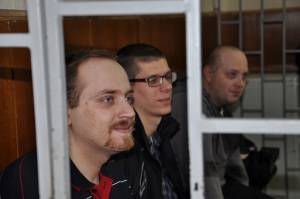
On Oct. 25, the Zaporizhya Court of Appeal upheld the conviction of three men charged over the bomb blast in July 2010 in the SvyatoPokrovsk Orthodox Church in Zaporizhya. It reduced each of the long sentences by one year.
Over all the previous hearings, the appeal court judges had asked questions which highlighted grave procedural infringements. These included the failure to include the changed indictment in the case file and the lack of explanation, as required by law, of the prosecutor’s motives. When asked why he had not revealed his reasons, prosecutor Andriy Kmet claimed that the amended version had simply corrected the estimate of damage to the church building. Just how far this diverges from the truth can be checked here The appeal court judges learned that nobody had tried to find the person from whom, according to the investigators, one of the defendants had purchased the explosive device. The judges noted a large number of significant discrepancies and infringements which should have suggested at very least a ruling that the case had not been fully investigated (grounds for revoking the sentence).
Yet on Oct. 25 Judge Yury Boikov stood up and read out a ruling upholding the conviction of all three defendants. At present we know only that the judges “excluded” three confessions. That admittedly still left former sacristan of the church Anton Kharytonov with three confessions, however this judicial juggling left his brother, Serhiy Dyomin, with only one confession, while the second sacristan, Yevhen Fedorchenko had his only confession “excluded”.
It should be noted that the three young men retracted all “confessions” as soon as they got real lawyers. The “exclusion” from the case of some of the confessions is hardly likely to be viewed with understanding at the European Court of Human Rights. One feels that both the first instance and now the appeal courts were hoping in this way to cover up the most questionable aspects of a widely publicized trial.
They could have saved themselves the effort. The “case of the sacristans” is well-known not because of any famous politicians or political motives. Although the bomb blast killed an elderly nun, it all happened in a church far from Kyiv and might have been forgotten had it not been for the role played by Viktor Yanukovych. The President immediately announced that he was taking the case under his personal control. The day after the explosion he appeared on national television issuing an order to the heads of the law enforcement agencies to find the culprits within the week. The first young man was pulled into the police station the very next morning, and by Aug. 6 the head of police reported just as publically that three men were in custody and that he would be proposing “incentives for the Interior Ministry, Security Service and Prosecutor General’s Office employees who had taken an active role in solving the crime”.
From the outset there were reports in the media which placed these upbeat assurances in question. There was a disturbing number of “confessions”: seven for three defendants. The first two were given immediately after the men were registered as being detained, but 13 hours or more after their actual detention. All defendants have consistently reiterated that the confessions were extracted through torture and threats.
There is no evidence to implicate any of the men in the actual crime. On the contrary, all three had unbreakable alibis for the time when, according to the investigators’ version, they had been running around the city passing the bomb to each other. That was the case, however, only until the prosecutor changed the indictment a matter of months before verdict was passed. The numerous significant amendments to the indictment included the removal of specified times where these clashed with the men’s alibis.
Lawyers were called in by the investigators for all formal procedures after the men were officially detained. For their participation in night interrogations and total failure to defend the detained men, two lawyers were stripped of their licence to work as advocates for 6 months by the relevant disciplinary commission, while another received a formal warning.
Despite the effective lack of defence; considerable periods of time held under the total control of the police before formally “appearing” in police custody; the night interrogations and investigative activities; contradictory confessions, as well as police inability to explain the gaping holes at the top of Kharytonov’s trousers, no investigation was ever carried out into the men’s complaints of torture and infringement of their right to a fair trial.
This cannot be attributed to laziness. On the application of the defence, two psychological assessments were obtained, first from the Luhansk, then the Donetsk Forensic Analysis Institutes. The assessments provided by two forensic psychologists were very similar. Both found that all the defendants had been placed under psychological pressure, that they had consistently been fed leading questions, most of which in fact contained a full answer. None had ever been asked for or given a free account of the crime they were supposed to have committed. Excerpts from the interrogations and the assessments can be found here and in the links below that text.
Judge Volodymyr Minasov responded by simply ordering a third assessment. This, from the Kyiv institute, found no inadmissible pressure. Minasov then rejected an application from the defence to call all three psychologists in to ascertain why the assessments diverged so radically. This refusal was noted as surprising by the appeal court judges.
Minasov also turned a blind eye to all procedural infringements regarding the revamped indictment and never asked why the changes had been made.
Then on April 2 he passed sentence: Kharytonov and Fedorchenko were sentenced to 15 years; Dyomin to 14.
In his ruling, Minasov “excluded” the first confession made by Dyomin claiming that this was because the interrogation and investigative measures had taken place at night. The appeal court judges pointed out the lack of consistency. Why, they asked, had Minasov not excluded Fedorchenko’s confession, also obtained at night? They did not, however, pay attention to the interrogations of Kharytonov which in two cases were also after midnight.
In their apparent quest for consistency they excluded the first of Dyomin’s confessions and Fedorchenko.
It is worth noting what they were trying to remove. Dyomin was taken into custody around 10 hours after his brother. Approximately 24 hours later, during a night interrogation he confessed to having made the explosive device. There is a video recording of him very uncertainly explaining how he had supposedly done so. This was ridiculed in the morning by explosives experts who said he clearly had no idea what he was talking about. By that afternoon another confession had appeared, this time saying that he had bought the device.
What exactly is meant by the “exclusion” of one confession when Dyomin himself has been adamant in retracting both confessions which he asserts were beaten out of him and denies any involvement in the crime? It all seems worryingly like a new attempt to rewrite the records of a murky case cluttered with contradictions.
As mentioned, the three appeal court judges: Y. Boikov, V. Mulchenko and V. Fomin all asked extremely pertinent questions about all the above contradictions and others (examples here). It is profoundly frustrating that despite the inadequacy of the answers they were given, or the failure to answer altogether, at the decisive moment the judges chose to not notice.
There remains one last cassation appeal in Ukraine, and then the European Court of Human Rights whose judges will not look away.
The ramifications for Ukrainian justice if judges can with impunity “exclude” one of two confessions are serious. This is just one of the reasons why the case is important, and why the three young men urgently need support and legal counsel. They have been in detention now for over three years. Virtually nobody believes that they are guilty, yet most believe assume that they are “doomed” because of the role played by Yanukovych.
In Ukraine and abroad at present everybody is waiting to see how the president will resolve the “Tymoshenko issue” on which they say the fate of the EU-Ukraine Association Agreement hinges. Perhaps it does, however the development of civil society in Ukraine also depends of the fate of these three young men. Acceptance that they are “doomed” is a move straight back into the Soviet past.
Glimmer of hope in the flawed Zaporizhya Church Bomb trial
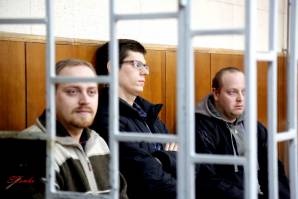
Answers remain thin on the ground regarding the bomb blast in the Zaporizhya Svyatopokrovsk Orthodox Church on July 28, 2010 and subsequent detention and trial of three young men. Vital questions, however, are now also being asked by the judges of the Zaporizhya Court of Appeal and the abject failure by the prosecutor to answer them noted.
The following contains just some of the unanswered questions about the criminal investigation which did not prevent Prosecutor Andriy Kmet from demanding – and getting - 14 and 15 year sentences for two former sacristans, Anton Kharytonov and Yevhen Fedorchenko, and Kharytonov’s brother, Serhiy Dyomin.
As reported, the hearing on Oct. 1 was adjourned so that the prosecutor could carry out a “check” as to why the mysteriously changed indictment almost on the eve of the verdict being passed was not in the file material. On Oct. 18 Kmet “explained” this by blaming an inexperienced court secretary.
If he hoped this would get the court off his back, he was disappointed. The judges asked how he had justified the changed indictment, this being a mandatory procedural norm. He claimed that he had only adjusted the size of the damage caused to the church building. The prosecutor’s memory was faulty – a list of just some of the substantial changes which were made without the legally required explanation can be found here.
The Mystery of the “Unidentified Individual”
At the Oct. 18 hearing, the judge asked the prosecutor to explain the appearance in the material of an “unidentified individual”. “After all Dyomin was first accused of preparing the bomb himself wasn’t he? Who mentioned an unidentified individual? Is an unidentified individual mentioned in Dyomin’s interrogation protocol?”
Prosecutor: “Well no, he’s not mentioned in the protocols. I think that the investigator himself came to this conclusion, assumption”.
Judge: “Were there any investigative measures taken to establish this individual’s identity? What was done at all by the investigator with respect to this unidentified individual?”
Prosecutor: “The material was set aside in separate proceedings”.
Judge: “We are aware of that, and what? Prosecutor, you haven’t answered the question – what specifically was done to establish the identity of this “individual”, and what is currently known about this “unidentified individual”? Did Dyomin say that he had purchased it from an unidentified individual?”
Prosecutor: (long pause) “Well ….”
Judge: “Understood”.
As reported, on July 31, 2010, after being held around 24 hours without any record of his arrival at the police station, Dyomin confessed to preparing the explosive device and during subsequent investigative measures carried out at night, endeavoured to show how he had done so. The following morning explosives experts failed him on the knowledge and skills needed for the task, and on the same day another “confession” was received according to which Dyomin had purchased the device from an “unidentified individual”. Nobody except Investigator Yeremeev spoke of this “unidentified individual”, and ever since September 2010 when Dyomin finally received a lawyer whom he himself chose, Dyomin has been adamant in asserting his innocence.
The prosecutor, incidentally, was also unable to answer another question regarding the two totally different “confessions”. The judge noted that the first instance court had excluded Dyomin’s identification of the bag and pot supposedly used for preparing the explosive device. Judge Volodymyr Minasov stated in the verdict that this was because the identification had taken place at night. Minasov, however, did not exclude similar measures in the case of Fedorchenko (and Kharytonov) also carried out at night. The Prosecutor was asked what he had to say about this discrepancy. He was silent.
Pockets cut out
During the first interrogation at night, commenced 13 hours after Kharytonov’s actual detention which was nowhere recorded, gaping holes are visible on Kharytonov’s trousers where the pockets should be. In court the police were unable to explain why and Kharytonov himself asserts that the police threatened to also cut off his genitals.
The judge asked why the pockets had been cut out, where they were now and whether a formal decision had been issued to remove the pockets. The prosecutor began talking about how it is customary to check pockets for traces of components of explosive devices. The judge asked whether any examination had been carried out of the cut-out pockets which forced the prosecutor to acknowledge that as far as he was aware, none.
It should be noted that in the file material the cut-out pockets are not mentioned at all, although from the moment when a real lawyer appeared on the scene, and not the limp individual called in by the investigator to sit in the corner, Kharytonov has asserted his innocence and alleged that all four “confessions” were forced out of him through physical and psychological pressure.
With respect to psychological pressure, two forensic psychological examinations carried out at the relevant Luhansk and Donetsk institutes pointed to pressure; the lack of any free account and leading questions (more details here). Judge Minasov’s response was to call another assessment, from the Kyiv institute, which found no pressure, only “inclination to criminality”. It is cheering that the appeal court judges have found it necessary to ask why the psychologists were not called as witnesses to explain such a discrepancy. They were not called because Minasov turned down the defence’s application for this.
A very large number of questions are equally obvious in this case and there finally seems a chance that they will be asked.
The next hearing is scheduled for Oct. 25.
The right to a fair trial
Dodgy Players, Dodgier Game
With Tymoshenko still imprisoned and EU patience wearing thin, you might have thought now was not the time to arrest another politician. Ukraine’s leaders would appear to have decided otherwise, for reasons which suggest some very strange manoeuvres.
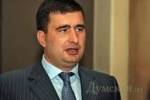 Igor Markov, leader of a marginal and strongly pro-Russian party Rodina and until recently an MP, was taken into custody on Oct. 22 in Odessa, his native city. He was brought to Kyiv by plane and there remanded in custody for at least two months. He is accused of organizing the beating up of Ukrainian nationalist VO Svoboda party supporters protesting against a monument to the Russian Empress Catherine II in Odessa.
Igor Markov, leader of a marginal and strongly pro-Russian party Rodina and until recently an MP, was taken into custody on Oct. 22 in Odessa, his native city. He was brought to Kyiv by plane and there remanded in custody for at least two months. He is accused of organizing the beating up of Ukrainian nationalist VO Svoboda party supporters protesting against a monument to the Russian Empress Catherine II in Odessa.
Beating up your opponents is undoubtedly undemocratic, probably illegal, so on the face of it there could be charges to answer.
Now for the difficulties: the impugned offence, classified as “hooliganism”, took place in 2007. In 2012 the Central Election Commission [CEC] found no problem in registering Markov as parliamentary candidate for the single-mandate electoral district No. 133 in Odessa. It later recognized him as a duly elected MP, with a lead of over 6% against his closest rival. In parliament he joined up with the ruling Party of the Regions faction. He is, however, known for his extreme pro-Russian views and had recently publically threatened to vote against bills needed for the EU-Ukraine Association Agreement.
On Sept. 19, almost 11 months after being elected to parliament, the High Administrative Court in Kyiv ordered the CEC to cancel Markov’s mandate. Unlike the central electoral authority, the court deemed that it had been impossible to establish reliable results for Markov’s constituency. There had apparently been reports to the police of vote-rigging, including pens with vanishing ink. How much ink would be needed to ensure a 6% lead is not clear, but the court decided that the results were void and that the CEC should organize a re-run.
It should be noted that this is the fifth MP whose election wins were confirmed by the CEC but whose mandates have been removed by the courts. The election watchdogs OPORA and the Committee of Voters of Ukraine [CVU] gave a damning assessment of the ruling on Markov and noted that the recent spate of court annulments of MPs’ mandate was a threat to parliamentarianism and could adversely affect negotiations on the EU-Ukraine Association agreement.
Markov’s lawyer has asserted that his client was summoned to the police over one charge and detained over another. Since the summons was for around 6 in the evening, it seems likely the detention was planned. He was clearly expecting it and had prepared a video beforehand calling on supporters to come out in protest, which around a hundred did that evening.
Russia’s State Duma has expressed protest and demanded Markov’s release. The Chief Editor of the Internet publication Levy Bereg, Sonya Koshkina has suggested that Markov was needed as hostage in Yanukovych’s planned negotiations with Putin in Minsk. There are and will continue to be other explanations mooted.
Whatever the motives, it does seem likely that the target has been chosen to be a near mirror image of Tymoshenko. He is openly pro-Russian, against EU integration and cordially hated by the opposition. When Tymoshenko’s defence counsel and opposition MP, Serhiy Vlasenko, was stripped of his mandate in March this year, the same High Administrative Court first stripped a ruling Party of the Regions MP of his mandate. The attempt at symmetry then was pitifully transparent and fooled nobody.
There is warranted outrage at present among the opposition over attempts to send Tymoshenko to Germany without revoking her sentence. There was also scandal over a strange Tax Code amendment hastily voted in by the ruling majority which could prevent leader of the UDAR party, Vitaliy Klitschko from standing for the Presidency in 2015. With Tymoshenko likely to be excluded from the presidential race, Klitschko is almost certainly the strongest opponent to the current president.
There has been considerable discussion, but relatively limited concern expressed over the arrest of Igor Markov on criminal charges which date back 6 years. The EU has made no comment.
Whatever manoeuvres are currently underway, law enforcement bodies and the courts are yet again being used for political ends. Obnoxious Markov’s views may be, but the methods used are dodgy and hardly reflect any move away from selective justice.
Who gets to appoint judges?

A draft bill proposing to strip parliament of the power to appoint judges for life, but give this right to the High Council of Justice and President, as well as life tenure for the Prosecutor General will not have the opposition’s support needed for a constitutional majority
On Thursday the ruling majority took the first step towards passing a law which would remove the Verkhovna Rada’s role in appointing judges, and could remove any fixed term of office for the Prosecutor General. The opposition is against any increase in the influence of the President on the judicial system and did not support the bill which gained 244 votes from the Party of the Regions, the communists and some non-affiliated MPs. In fact however, since the bill proposes amendments to the Constitution, it requires a constitutional majority of 300 votes.
The bill removes parliament’s right to appoint judges to indefinite tenure, passing this right to the President who is supposed to act on the recommendation of the High Council of Justice.
The bill also proposes to remove the constitutional norm which stipulates a five-year term of office of the Prosecutor General.
The proposed amendments to the Constitution on the judicial system were tabled in the Verkhovna Rada by President Yanukovych on 4 July this year. The explanatory note asserts that the amendments are in accordance with the Venice Commission’s recommendations. The draft law was passed to parliament without consideration of the opinion of the Constitutional Assembly which had drawn up its own draft amendments. This second bill received an assessment from the Venice Commission on 15 June.
The Venice Commission continues to support all proposals stripping the Verkhovna Rada of the right to appoint judges.
There is however no mention of the indefinite powers of the Prosecutor General which therefore has not been considered by the Venice Commission.
Andriy Portnov from the President’s Administration writes in the explanatory note that the EU demands greater independence for the Prosecutor General. He cites a Venice Commission opinion from 17 October 2006 which recommended that the Prosecutor General be appointed for life or for a longer period.
The opposition is against life tenure for the Prosecutor General.
Although the draft bill is among the so-called European integration laws and the opposition voted for the draft to be sent to the Constitutional Court on Sept. 5, they see a number of dangers in it.
The opposition has prepared a joint statement asking for the draft law to be reworked.
They are against the president having the power to appoint judges for life tenure. They demand instead that judges be appointed only by the High Council of Justice which should be made up solely of judges.
The statement asserts also that the indefinite term of office for the Prosecutor General will lead to the person being in office for life and to untrammelled extension of nepotism.
The opposition points out that this would mean that the current Prosecutor General Viktor Pshonka could hold office until at least 2019 when he turns 65.
“Viktor Pshonka will be able to work for life, this is nonsense for Ukraine. And the court system will be totally concentrated in the president’s hands before the 2015 elections. The opposition will therefore not vote for it, and it will not gain 300 votes.”, Viktor Shvets, First Deputy Head of the Committee on Legal Policy and Batkivshchyna MP told the BBC.
Some other doubts regarding these and other changes can be found in Ukraine: When Reform isn’t
Freedom of expression
New political season brings journalists increased threats and intimidation

The Institute for Mass Information [IMI] reports an increase in the number of threats and attempts to intimidate journalists in September, as well as in the number of cybercrimes against media sources.
In its Freedom of Speech Barometer for September, IMI writes that there were 4 documented cases where journalists were threatened, against 1 in August. There were 4 cyber attacks, whereas only 2 were reported over the entire summer.
There were also numerous and varied fishing attacks on the emails of well-known journalists and civic activists.
There were 11 cases falling within the category of obstruction of journalists carrying out their work, as against 9 in both July and August.
Economic pressure rose with 3 cases reported against 1 in August and none in July. The increase in political pressure was less marked – 5 cases against four in August and 1 in July.
The opposite was seen with the number of assaults on journalists: in September there were 4 against 5 in August and 10 in July. There were, however, two cases where media offices came under attack while there were no such cases through the entire summer.
The most publicized events:
Pressure on the Internet site Ukrainska Pravda
As reported here, at the end of August and beginning of September newspapers were circulated in Kherson, Ivano-Frankivsk, Poltava and Kremenchuk with the same name and logo as the influential Internet publication Ukrainska Pravda. The fake issue was on oligarchs’ media assets. At the same time another site called Ukrainska Kryvda [Ukrainian Injustice”] was launched with design similar to that of Ukrainska Pravda.
A draft law which would seriously curtail access to public information (see Access Denied for more detail)
The bill was initially registered by three Party of the Regions MPs and one MP from the opposition Batkivshchyna party. The latter, however, withdrew his support for the bill. Journalists and civic activists have called for the bill to be withdrawn altogether.
IMI reports that since the beginning of this year, it is aware of 64 cases where journalists have been attacked or threatened; 100 where they have been obstructed in carrying out their work; 37 cases of censorship and 36 cases of political and economic pressure.
The full report is presently only available in Ukrainian here http://imi.org.ua/barametr/41817-barometr-svobodi-slova-za-veresen-2013-roku.html
Stop Censorship protests smear tactics against NGOs and media
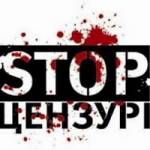
Stop Censorship and a number of other civic organizations have issued a statement expressing outrage over the smear campaign underway aimed at discrediting NGOs and independent media.
They write that over the past year there has been a sharp escalation in the number of threats, physical assaults and planned campaigns against journalists and civic activists. In the majority of cases the police have failed to respond adequately. Cases have become more frequent where false or deliberately distorted information about civic organizations or independent media sources have been circulated.
The most flagrant such example is the unauthorized gaining of access to the emails and computer of the Executive Director of the Institute for Mass Information, Oksana Romanyuk and publication on a specially created website of private material.
The statement goes on to say that such actions demonstrate a clear aim to cause maximum harm to the reputation of civic organizations and journalists.
They point out that state-owned media sources are playing an active role in this smear campaign. On Oct. 5 the State-controlled UTV-1 carried a biased report about a picket against the organizers and participants of a seminar on journalist standards run by Telekritika in Vinnytsa. The state TV channel’s material was unbalanced and one-sided, putting forward a number of assumptions and accusations which the organizers and participants were not given a chance to respond to.
Stop Censorship stresses that the NGOs under attack in this smear campaign are acting in full accordance with the law and international standards of openness and transparency of civic organizations.
This openness must not, they stress, be used as an opportunity for illicitly gaining access to technical means used by staff of the organizations.
The actions against NGOs and independent media should, they stress, be treated as obstruction of journalists carrying out their work (article 171 of the Criminal Code); Article 182 (intrusion into private life); Article 163 § 2 (infringing confidentiality of correspondence); and Article 361 (unlawful entry).
They demand that the Police, the Prosecutor General and Security Service carry out an investigation and find those responsible.
Oksana Romanyuk announced on Wednesday that she had reported the actions against her to the police. Thorougly scurrilous allegations were made about her on the Internet site “Ukrainska Kryvda” which is a clone of the popular website Ukrainska Pravda originally begun by slain journalist Georgy Gongadze.
Vast amounts spent on long-term smear campaign
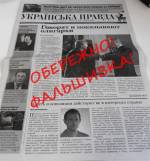
Careful - Fake (the words in red on a fake Ukrainska Pravda paper)
Taras Shevchenko, Director of the Media Law Institute, does not believe that the current campaign underway to discredit authoritative media sources will undermine the public’s faith in them.
“Ukraine’s faith in the media is rather paradoxical. I think that in fact they trust the media too much, especially television which is presently completely partisan and under oligarchs’ control. Nonetheless this is the main source of information for a considerable number of Ukrainians. Far more Ukrainians believe the media than those in power. Can we talk of faith in the media being undermined? I don’t think so.”
Shevchenko says that it is no surprise that 18 months before the presidential elections such a campaign aimed at discrediting the media has begun.
“Those in power or their representatives are clearly behind this. It’s not surprising that a year and a half before the elections they’ve begun making certain efforts to diminish the media’s impact, discredit it and simply unsettle publications. I think such thinks are planned as a long-term campaign. Unfortunately, therefore, this will continue. Somebody is clearly spending vast amounts on trying to interfere with Ukraine’s information landscape.”
He points out that none of this is new, and that there have been numerous attempts to circulate fake runs of publications, leak overheard conversations where truth is mixed with fiction, in order to discredit the media. Perhaps the only difference is in the larger scale and serious planning behind this new campaign. He predicts that there will be other methods as well in this dirty campaign.
He suggests that an effective method of fighting such campaigns is to totally ignore any information about them since they in fact thrive on attention.
At the end of August and beginning of September newspapers were circulated in Kherson, Ivano-Frankivsk, Poltava and Kremenchuk with the same name and logo as the influential Internet publication Ukrainska Pravda. The fake issue was on oligarchs’ media assets. At the same time another site called Ukrainska Kryvda [Ukrainian Injustice”] was launched with design similar to that of Ukrainska Pravda.
There have also been a lot of scurrilous reports in the media about certain critical journalists, less often about media sources. They all quote an “informed source” or “sensational documents”. There were, for example, attempts to discredit the journalist Olha Snitsarchuk and her photographer husband, Vlad Sodel, after they were assaulted by Vadim Titushko and other thugs hired to “guard” the Party of the Regions “antifascist” demonstration on 18 May this year.
From a report at Ukrainsky Tyzhden
Ukrainian Railways caught illicitly gathering personal data

The State Administration on Personal Data Protection has ordered Ukrainian Railways [Ukrzaliznytsa] to stop collecting personal data about its passengers. It transpired that the information about all customers was being input into an illegal database. Human rights groups warn that this information can be passed to third parties.
Each day thousands of Ukrainians used the railways without having any idea that all the information about their movements was being input into Ukrzaliznytsa’s database. In breach of the Constitution the passengers were not informed about this database, and there was no attempt to get their consent.
The risk is also great that the information will be passed to a third party, those who have an interest in knowing where you go when you’re not at home or work.
Maxim Shcherbatyuk from the Ukrainian Helsinki Human Rights Union stresses that the risk of abuse is enormous. Such information gathering, for example, could be used for politically motivated monitoring of, for example, the movements of opposition figures, journalists or civic activists.
Tetyana Pechonchyk from the Human Rights Information Centre pointed out that there had already been cases when activists planning to take part in protests had been removed from trains. On 17 May 2013 30 members of VO Svoboda were taken off the train to Kyiv where they were intending to take part in the large-scale rally “Rise Ukraine”. The police knew their travel plans and addressed each of the activists by name.
The State Administration on Personal Data Protection has ordered Ukrzaliznytsa to stop gathering the information by 29 November this year.
Roman Holovenko from the Institute for Mass Information and member of the State Administration on Personal Data Protection’s enquiry commission on Ukrzaliznytsa stresses that Ukrzaliznytsa and subordinate structures may be obliged to add names to tickets, but do not have the right to keep this information.
UHHRU is currently preparing a collective legal suit against Ukrzaliznytsa aimed at removing personal data from the database and holding the company to account. The documentation will be published on the UHHRU site www.helsinki.org.ua and can be used by all those wishing to initiate civil proceedings.
From the UHHRU report here http://helsinki.org.ua/index.php?id=1380802346
Access to information
Access Denied
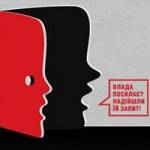 More about the Open Access films here http://vidkrytyi-dostup.com/home/?lang=eng
More about the Open Access films here http://vidkrytyi-dostup.com/home/?lang=eng
Journalists have called on President Yanukovych to intervene over systematic sabotage of viewings of a documentary film medley “Open Access”. If the appeal seems trivial and misdirected, it is not. One of the films is about journalist Serhiy Leshchenko’s efforts to uncover the circumstances behind the privatization and ownership machinations of Yanukovych’s controversial estate at Mezhyhirya.
Since the 2011 Public Information Act is deemed one of the current regime’s few success stories, both informal efforts to restrict access to information of clear public importance and legislative moves with direct impact on such access deserve scrutiny.
Under Yanukovych’s presidency, only a carefully selected group of journalists have been given a no less edited view of what was once an official State-owned residence. All efforts to obtain information about public funding spent on the residence have been thwarted, and all planned peaceful protests anywhere near the gates of the vast estate banned by the courts. In May this year two Democratic Alliance activists were jailed for 5 and 7 days over entirely peaceful protest.
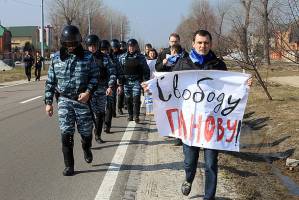
Peaceful protest over the jailing for 7 days of Maxim Panov after he and three others were detained in the village near Yanukovych’s controversial and highly secret residence at Mezhyhirya
“Open Access” viewings in September were disrupted in 8 out of 20 cities. In Kyiv on Sept. 27 around 30 inebriated down-and-outs occupied the first rows of the cinema, smoked, let off smoke bombs and generally disrupted the viewing. They were wearing badges with the words TRAMP TV, making it clear that somebody had organized their stunt. Shortly after they were finally removed, the police appeared and demanded that the cinema be cleared, supposedly because of a bomb alert.
The authorities in the Crimea were especially zealous with the viewings disrupted in both Simferopol and Sevastopol. In Feodosia, the hotel which had agreed in advance to the film showing received a visitation from people who suggested that the film showing should not take place to avoid problems. The hotel backed off and cancelled the showing.
There were equally gross forms of sabotage in a number of other cities. None of it was formal, and there may not have been any directives from the President’s Administration. Over the last three years, however, there have been numerous cases of heavy-handed actions by the police or unidentified individuals in response to films, posters or protests unflattering to the president.
Easy to understand, therefore, why journalists and civic activists addressed their appeal last week to Yanukovych
Those calls are unfortunately as likely to go unheeded as others over the last two years since the Public Information Act was passed. The “Open Access” documentary films all pertain to ongoing problems with access to information.
The Public Information Act was widely praised back in 2011, yet late into 2013 a crucial bill No. 0947 has still not gone beyond its first reading in parliament. The bill proposes amendments to around 50 pieces of legislation vitally needed for the said Act to actually work. The paperwork, if you don’t scrutinize the dates too closely, can be waved about in public, while access, at least to really sensitive information, remains as hampered as ever.
It could become even more restricted if certain MPs have their way. Three MPs from the ruling Party of the Regions have tabled a draft bill №3301 which, if passed, could seriously curtail access to information. It would declare any information about an individual confidential and therefore able to be divulged only with the person’s consent. It would also remove the requirement for bodies of local self-government to publish individual acts making it even easier for such local bodies to conceal corrupt dealings involving public funding, allocation of land etc. There are a number of other provisions which would make it easier for officials to block access to information.
Even if this bill is deemed too scandalous to pass, the tendency to justify concealment of important information on the grounds that the material contains “confidential” information has already taken hold. On Aug. 9 the District Administrative Court in Kyiv upheld the refusal by the Verkhovna Rada Office to provide copies of income declarations submitted by the Parliamentary Speaker and leaders of all party factions. The argument was that they contain “confidential” information. Any such data can, of course, be blotted out leaving the information which the public are entitled to as per both the Public Information Act and anti-corruption legislation. Or it can be used as a convenient shield hiding all kinds of secrets.
On the subject of shields, one other initiative, also from Party of the Regions MPs, should be mentioned. Some of them have recently expressed fear of falling pieces of technology from the journalists’ balcony in parliament and proposed inserting a barrier. The injuries are thankfully hypothetical, unlike the video footage taken by journalists from the balcony of Party of the Regions MPs voting illegally for truant colleagues. The proposed shield would prevent such irritating attention to MPs’ voting habits.
MPs are in a legislative flurry at present hastily adopting rough and unrefined draft bills required by the EU before the Association Agreement can be signed. The argument is that they can be reworked later and amended via subordinate legislation.
Like the subordinate legislation needed for two years now to make the Public Information Act bite. Legislative moves are manifestly not enough especially when they require political will, the lack of which is an entirely open secret of the greatest public importance.
Freedom of peaceful assembly
Obstructing those who obstruct peaceful gatherings
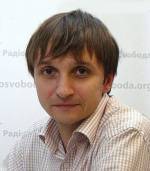
Another attempt is due this week to legislate guarantees for freedom of peaceful assembly. Two draft bills are up for consideration, both called, unoriginally enough, “On Freedom of Peaceful Assembly” №2508а та №2508а-1.
Volodymyr Yavorsky, member of the Ukrainian Helsinki Human Rights Union Board, writes that both bills have their positive aspects and could be passed as a base, then refined for their second reading. He personally sees the first as more balanced and well-thought-out.
Yavorsky’s reasons for believing a Peaceful Assembly Act is vitally needed were reported here. He writes that all of the arguments presented several months ago remain valid. In fact, he points out, there is even more information of local authorities bringing in their own restrictive regulations on peaceful assembly. These would be cancelled if a law was adopted.
He stresses that civil society should support such a bill and sets out fundamental guarantees that it will provide.
A basic principle of No. 2508a is the presumption that peaceful gatherings can take place. Even if notification has not been provided, this does not give grounds for stopping or restricting a peaceful meeting.
The police may intrude only if it ceases to be peaceful, and only to stop the disturbance of public order, not the meeting itself.
Clearly this will depend also on practice, nonetheless the guarantee will have been provided at legislative level and on this basis one will be able to demand better practice.
At present, there are no such guarantees, Yavorsky says, and the police use abstract norms from the Police Act at their own discretion to stop or restrict any peaceful gathering. Not one police officer has ever been punished for this.
The government is not fulfilling its international obligations with respect to ensuring freedom of peaceful assembly. This includes the positive duty of ensuring protection of participants, resolving organizational details, such as diverting traffic, ensuring that medical services are present, etc.
These duties must also cover occasions where a vulnerable minority is likely to encounter aggressive opposition.
Draft No. 2508a clearly stipulates these positive duties and the possibility of demanding compensation if they are not fulfilled.
Yavorsky stresses again that with the present lack of clear rules, whether or not a peaceful gathering can take place depends on the will of local officials. If a gathering is likely to attract politicians, the media etc, then officials will probably not try to put a spoke in the wheels. If it’s ordinary citizens trying to organize a gathering, then, he says, its up to the officials who know that they don’t have to fear any adverse legal consequences.
This can be seen from monitoring of peaceful assembly. Where the authorities, like in Kharkiv, are against peaceful protest, there are more court bans and the police act in a much more aggressive manner. The draft bill would prevent officials acting at their own discretion.
Obviously any law can be flouted, but then there need to be legal mechanisms again this. There are no such mechanisms now and not one case of an official having been punished for obstructing a peaceful gathering.
The law would provide guarantees against unwarranted court bans. As reported here, around 90% of applications from local authorities for a ban on peaceful assembly are allowed. Various pretexts are given, the absolute majority of which are not in line with international standards. Around 70-80% of these pretexts would be banned if draft bill No. 2508a were adopted.
He believes that adoption of the law would lead to at least a halving of the number of bans.
Mystery strongmen in black outside Mezhyhirya identified
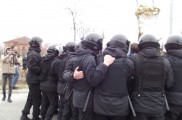
So much for the Public Information Act: it’s taken the Centre for Civil Liberties five months to get an answer to a very simple question. Simple, yet sensitive, since it concerns the extraordinary measures taken to keep the public away from President Yanukovych’s controversial residence at Mezhyhirya.
As reported, in May this year the Centre’s peaceful assembly watchdog OZON issued a public statement demanding that the Interior Ministry explain who the identified men in black were that had obstructed a peaceful gathering near Mezhyhirya on 15 April.
OZON said that their representatives had been present at a peaceful gathering in defence of freedom of peaceful assembly organized by the Democratic Alliance party and its youth branch in the village of Novi Petrivtsi near Mezhyhirya. They were confronted by a group of individuals in black uniform with bullet-proof vests, rubber batons, walkie-talkies and other special devices, yet without anything to indicate who they were. They were obviously working closely with the police including the Berkut riot police and pushed the demonstrators away, creating a circle around some of them and detaining one.
They refused to identify themselves when asked both by the demonstrators and by OZON.
Five months of correspondence later …
The Kyiv Regional Police have finally admitted that, despite the lack of any means of identifying them, the officers were in fact from a Special Force Berkut unit. This same body had previously told the Centre for Civil Liberties that they didn’t know who the men were.
OZON stresses that the lack of any means of identifying officers supposedly protecting public order is unacceptable. They note also that the gathering was in an open public area and that the organizers had given prior notice of their intention to hold a meeting.
They cited the OSCE ODIHR Guidelines on Freedom of Peaceful Assembly
Item 12: Police officers should be clearly and individually identifiable. Police officers, while in uniform, must wear or display some form of identification (such as a nameplate or number) on their uniform and/or headgear and not remove or cover this identifying information or prevent people from reading it during an assembly.
Deported peoples
The Crimean Tatar Issue: A Government in Dangerous Denial
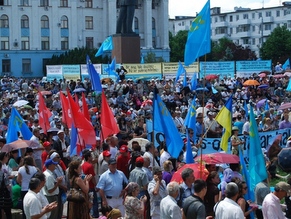
In Remembrance of the Victims of the Deportation, May 18, 2012 (Simferopol)
The standard denial by Ukrainian officials of discrimination, racism and other ills took on new dimensions last month when Ukraine’s Foreign Minister effectively denied the existence of problems not just experienced by the Crimean Tatars but documented in detail by major European structures.
It is impossible not to share the frustration expressed by Natalya Belitser from the Pylyp Orlyk Institute of Democracy during an address given in Simferopol on Oct. 3. She focused on the Crimean Tatar issue in the context of Ukraine’s European integration, the importance of which seems to be understood by all barring those holding high office in Ukraine.
The Crimean Tatar issue was not one of the 11 priority areas on the list drawn up by Štefan Füle, EU Commissioner on Enlargement and European Neighbourhood Policy (the Füle List). This list, later shortened, was of key commitments which Ukraine had to fulfil or have made significant steps towards fulfilling for the EU-Ukraine Association Agreement to be signed at the end of November.
No intellectual feat is needed to understand that the absence of an issue from this list does not mean that it doesn’t exist. Indeed Füle’s address at the Conference on the Rights of Crimean Tatars on Sept. 19 made the EU’s recognition of its importance abundantly clear. The Commissioner highlighted a number of key issues needing reflection, namely: the legal aspects of return for formerly deported Crimean Tatars returning to their original homeland; the issue of land, housing and property; political participation; socio-economic aspects of return and integration; the issue of language, culture and religion; and that of education. His address was largely based on the conclusions and recommendations of a vital report commissioned by the OSCE High Commissioner for National Minorities [HCNM]
With European integration very much on the agenda, it is immensely regrettable that Ukraine’s Foreign Minister Leonid Kozhara and the Crimean Prime Minister Anatoly Mohylyov created the impression that Ukraine’s leaders are living in some kind of parallel universe. Following the Sept. 19 meeting, Kozhara stated that the government was not planning to use the OSCE HCNM report; that the Crimean Tatars do not face any form of discrimination but enjoy all the same rights as other citizens of Ukraine. And that’s that then.
Or not quite the end of the story and this is not just because stubborn denial will not make the problems faced by the Crimean Tatars go away. According to Belitser, during the Sept. 19 meeting, “the Foreign Minister saw fit to ignore the presence of representatives of the Office of the High Commissioner on National Minorities - its Head, Ilse Brand-Kekhris; Senior Legal Adviser Vincent de Graaf and Senior Political Adviser Bob Dean”. She suggests that this extraordinary behaviour must make European and international representatives doubt the Ukrainian leadership’s stated commitment to observing European standards on the rights of minorities.
Such doubts are felt by Crimean Tatars and those closely following the situation in the Crimea. The problems identified in the above-mentioned reports, as well as others such as the European Commission against Racism and Intolerance: Fourth Monitoring Report and US State Department Report, are long-standing, and the current regime is not the first to be failing to address them properly.
There have, however, been a number of worrying developments over the last three years.
Concern over President Yanukovych’s appointment of Anatoly Mohylyov, known for his notorious hate speech and actions as head of the Crimean police to the post of Prime Minister of the Crimea in November 2011 has proven well-founded. Few analysts believe that Mohylyov’s confrontational approach and efforts to undermine the Mejlis of the Crimean Tatar People do not have the president’s support. People from extremely marginal groups have been placed in positions previously held by members of the Mejlis, seemingly on the basis of their likely loyalty to those presently in power.
The old lie about supposed Crimean Tatar collaboration with the Nazis used as Stalin’s excuse for the Deportation in 1944 has recently appeared in a book published with Crimean local authority funding. Since the Soviet regime itself acknowledged back in 1967 that the allegations were unfounded, the motives of all those rehashing the lie must be questioned.
It is worth remembering one warning from the OSCE report which Ukraine’s Government has chosen to dismiss:
“Crimea faces a volatile mixture of acrimonious political competition, socio-economic exclusion, inter- and intra-religious strife and a general atmosphere of increasing intolerance. The risk of inter-ethnic violence is real and requires urgent attention, both from Ukraine and from its international partners.”
A policy of denial is always doomed to failure. When accompanied by ill-considered and provocative actions, and astounding disregard for offers of assistance, it is also dangerous.
News from the CIS countries
Then and Now: 70 political prisoners in today’s Russia
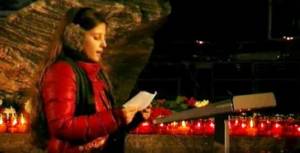
Remembering the names of Victims of Repression in Moscow, 29 October 2013 (photo from www.HRO.org
Back in 1974, Soviet political prisoners declared 30 October to be Day of Solidarity with Political Prisoners in the Soviet Union. Since 1991 30 October is marked as Day of Remembrance of the Victims of Political Repression. In Moscow, St Petersburg, Ryazan and other cities people gather to read out the names of victims of repression.
This year Memorial also marked this day by making public a list of 70 contemporary political prisoners in Russia. At a press conference they announced new criteria drawn up for recognizing people as political prisoners. The criteria were prepared in cooperation with human rights activists from other Eastern European countries on the basis of recommendations from Amnesty International, PACE and other international organizations.
The list of 70 political prisoners, in accordance with the new criteria, includes the following:
Foreign nationals – Greenpeace activists and members of the Arctic Sunrise crew detained by Russian border guards while protesting against oil drilling in the Arctic; The Bolotnaya Square prisoners: people in custody on charges linked with the May 6, 2012 protest against Putin’s third term inauguration;
Pussy Riot prisoners: Nadezhda Tolokonnikova and Maria Alekhina;
Mikhail Khodorkovsky, Platon Lebedev and Alexei Pichugin sentenced on charges linked with YUKOS;
Scientists convicted of “spying”L Yevgeny Afanasyev; Sviatoslav Bobyshev and Sergei Vizir;
Others convicted on other charges.
The list, it was stressed, may not be comprehensive. The full list in Russian can be downloaded by pressing the hyperlink here: списоксемидесяти современных российских политических заключенных,
Moscow court orders indefinite psychiatric hospitalization for Bolotnaya Square activist
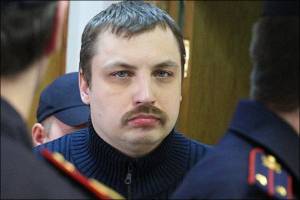
A Moscow court has found Mikhail Kosenko guilty of involvement in the supposed disturbances during an anti-Putin demonstration in May 2012 and ordered that he be placed against his will in a psychiatric hospital. The diagnosis of “sluggish schizophrenia” was commonly used during the days of Soviet punitive psychiatry.
Kosenko was found guilty of taking part in the disturbances on Bolotnaya Square on 6 May 2012 and of assaulting a police officer. He had, however, been found mentally unfit, with a diagnosis of schizophrenia, and the prosecution did not ask for any fixed term. Kosenko’s defence lawyers and family are appalled by the court order and say that this amounts to an indefinite sentence.
Mikhail Kosenko has been in custody since summer 2012. His case was separated from that of other activists detained just as controversially over the events of that day. There were indeed confrontations with the police that day, however protesters and civic organizations have repeatedly pointed out that the situation was exacerbated by the police forcing a huge number of people, protesting against Putin’s third term as president, into a confined area.
The diagnosis of «вялотекущая шизофрения» («sluggishly progressing schizophrenia”) has ominous associations with the worst years of punitive psychiatry in Soviet times. Kosenko’s relatives are adamant that he does not need hospital treatment and are demanding a new psychiatric assessment.
The court ruling was met by those gathered outside the court with outrage and chants of “Freedom”!. The police apparently detained those engaged in this entirely peaceful protest.
Kosenko’s case has been followed closely by a civic monitoring initiative OGON who found a large number of serious violations of his right to a fair trial.
This, however, is true of the Bolotnaya Square trials in general which Memorial has condemned as fundamentally flawed and reminiscent of the worst Soviet traditions, including attempts to find a “conspiracy” where there is none. In a statement from July this year, it said: “On 6 May 2012 nothing took place which warrants the term “mass disturbances”, neither from a legal, nor a layperson’s point of view. There were no serious police injuries, no broken windows; no overturned cases; no attempts to use weapons by demonstrators. The public has not been given any convincing evidence of criminal intent in the actions of the demonstrators.
There are on the other hand any number of examples of unprofessional actions by the police resulting in clashes and inappropriate use of police force.”
During the investigation the Investigative Committee immediately and emphatically came out on the police’s side. The bias of the investigators; the exaggerated classification of the events by the investigative bodies; the crowds of investigators looking into a standard clash; the inappropriate detention measures imposed by the courts all in themselves deserve close public scrutiny.” The full statement can be read in English here
Human Rights in Russia reports that Mikhail Kosenko’s defence will be appealing Tuesday’s ruling.





